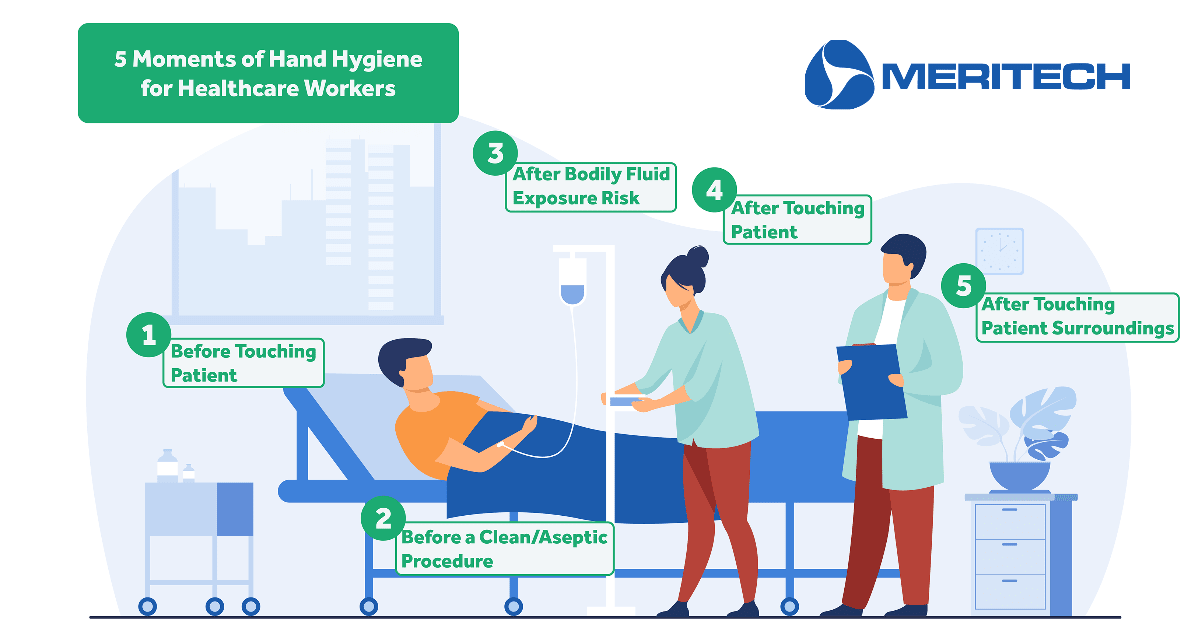NICU Hand Washing Guidelines to Protect Your Patients and Staff
The neonatal intensive care unit (NICU) focuses on newborns with medical issues that demand close attention and constant monitoring. In the NICU, a nurse may work with premature and very low birth-weight babies, newborns with spina bifida or other birth defects, babies born addicted to legal or illicit drugs, and other life-threatening conditions. Hand hygiene is a crucial aspect of maintaining the health of the newborns being treated here so the NICU hand washing guidelines must be strictly followed by both healthcare providers and family.
What are the NICU hand washing guidelines for staff?
The NICU hand washing guidelines for healthcare staff do not change, but the importance of handwash compliance increases drastically. There are an estimated 17 million hospital-acquired infections each year making it incredibly important that staff wash their hands effectively at the different times spelled out in the 5 moments of hand hygiene.

- Before touching a patient
- Before a clean/aseptic procedure
- After bodily fluid exposure
- After touching a patient
- After touching a patient’s surroundings
What are the NICU hand washing guidelines for visitors?
NICU’s have some of the highest-risk patients within the entire hospital. This makes visitation of these fragile newborns difficult. Combined with visitors being uneducated on the proper NICU hand washing procedures, there is a serious threat of outside contamination and infection risk. Visitors are supposed to wash their hands for 3 minutes, scrubbing from fingernails up to elbows. The level of cleanliness needed requires much more time and attention than your everyday hand wash.
A study on the behavior of NICU visitors observed 126 individuals as they entered the NICU to see how well the guidelines are followed. Of the visitors observed, only 2 were compliant with the NICU hand washing guidelines presented to them. This data clearly shows NICU visitor handwashing compliance needs improvement and helps inform hospitals on ways to accomplish this.
How to improve visitor compliance with NICU hand washing guidelines
- Verbal reinforcement. A great way of improving compliance is by speaking to visitors about NICU hand hygiene guidelines before they enter for the first time. Make sure to fully explain why these handwashing guidelines need to be strictly followed for the health and well-being of the patients. Beliefs drive behavior, and once visitors understand the stakes of not washing their hands properly, compliance with NICU hand hygiene guidelines is much more likely.
- Signs. Be sure to have adequate handwashing signage that is easily seen, read, and understood. Visitors in the NICU are often under high amounts of stress, causing forgetfulness. A gentle reminder of proper handwashing steps for NICUs through effective signage is a great way to improve hand hygiene compliance.
- Accessibility. Make the NICU hand hygiene process easy and intuitive by having adequate supplies, a well-designed hygiene zone, and hand wash stations that can be used by all. In the study mentioned previously, one of the visitors was in a wheelchair and did not wash their hands due to an inaccessible wash station.
How Automation improves NICU hand washing compliance at hospitals
At Meritech we have developed CleanTech® Fully Automated Handwashing Stations to be easy, fast, and effective. The quick 12-second cycle removes more than 99.9% of harmful pathogens every time. Our technology is easily operated, regardless of user age, language, or skill level. This ease of use will greatly improve compliance without compromising efficacy. Check out our CleanTech® Handwashing Station here. If you’re interested in learning more about how Meritech can help improve the safety of your hospital’s NICU please contact us today!







